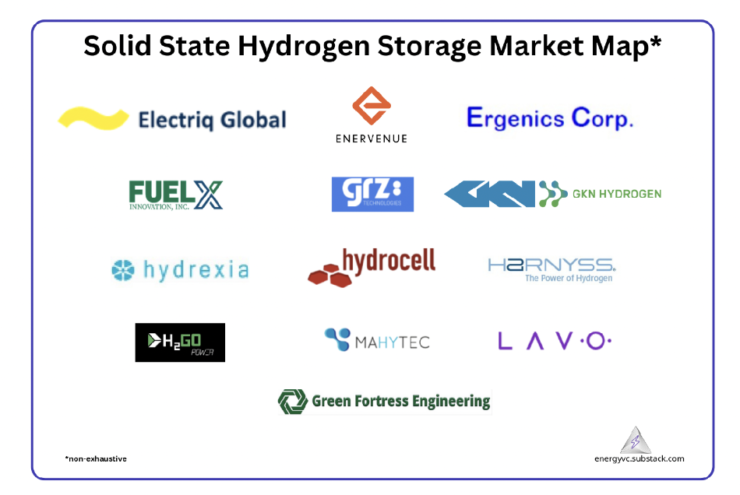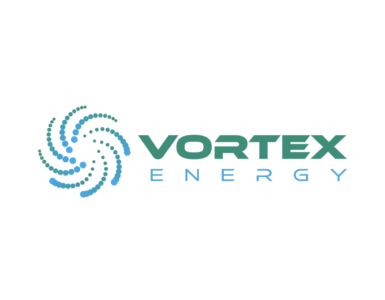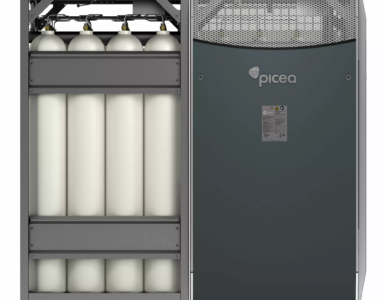The case for solid state hydrogen storage in solving the energy trilemma.
Growing up in Calcutta, I saw the effects of energy poverty on low-income communities during regular visits to my grandparents’ in rural India where electricity only arrived in the late 2000s. This experience showed me how the lack of energy can impact health, education, and opportunities for low-income communities disproportionately affected by climate change.
There are over 900 million in sub-saharan Africa who do not have access to electricity. The energy trilemma, which requires balancing sustainability, reliability, and affordability, is the greatest challenge of our lifetime. The intermittency, storage, transmission bottlenecks, and supply chain constraints with scaling the predominant renewable energy sources continues to be the key challenges for decarbonization.
Hydrogen, the lightest element, plays a crucial role in solving the energy trilemma. While regulatory policies, investors, and renewable developers across the globe are focussed on producing hydrogen, the storage infrastructure piece of the equation remains unsolved.
🔥 What about we co-host a webinar? Let's educate, captivate, and convert the hydrogen economy!
Hydrogen Central is the global go-to online magazine for the hydrogen economy, we can help you host impactful webinars that become a global reference on your topic and are an evergreen source of leads. Click here to request more details
As more natural deposits and bioengineered gold hydrogen are discovered and developed, the need for storage will only increase. Additional investments in hydrogen storage infrastructure can increase renewable penetration and unlock global trade routes. It can also decarbonize heavy industries and long-haul transportation, which accounts for over 40% of global carbon dioxide emissions.
Roughly $59 billion was invested in climate tech startups in 2022, with 48% going into mobility, which is only responsible for 15% of global greenhouse gas emissions. Less than 1% ($270 million) was invested in solid-state hydrogen storage, the most energy-dense form of hydrogen storage. Governments and investors around the world have heavily incentivized and invested in hydrogen production technologies.
As a result, the cost of green hydrogen is expected to decrease rapidly in the coming decade. This will create a significant need for efficient transportation, trade, and most importantly storage.
We need more public and private investments in solid-state hydrogen storage technologies if we want to avoid bottlenecks, increase resiliency, and unlock the $11 trillion carbon-neutral hydrogen economy.
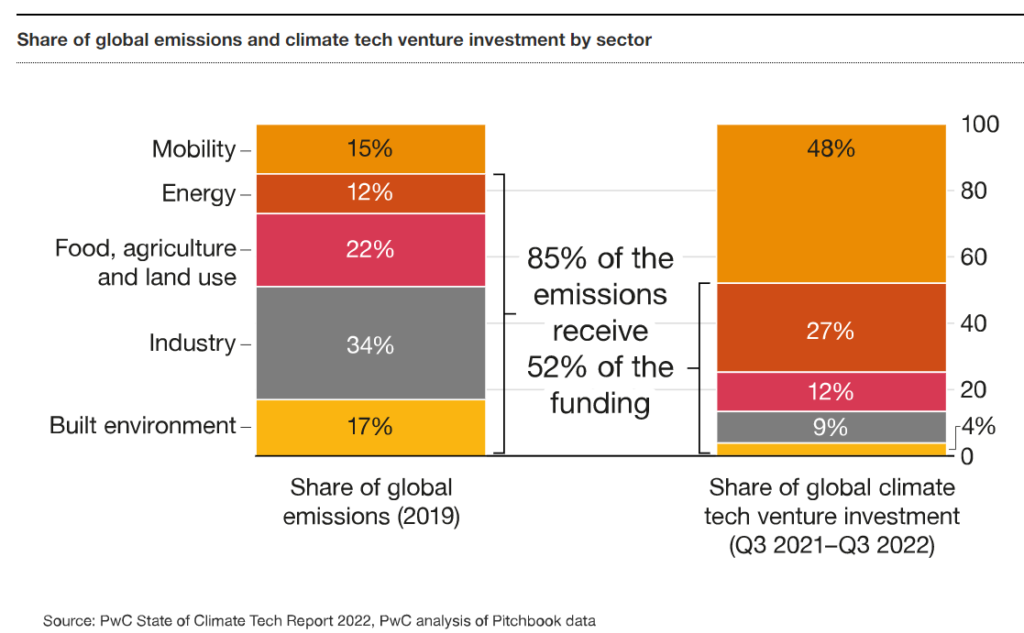
Hydrogen can store energy much more efficiently than electrons and can transport energy over long distances, like conventional fuels such as oil, natural gas, and coal. Surplus or uneconomic energy is often flared, curtailed in the absence of energy storage, or worse remains undeveloped due to long interconnection queues.
Efficient hydrogen storage and transportation can elevate human prosperity globally by harnessing the otherwise wasted or untapped economic potential of stranded energy resources. However, hydrogen has a very low energy density which means we need much more volume of hydrogen than LNG (liquified natural gas) and petrol to produce the same amount of energy.
Most common methods of hydrogen storage, expensive gigantic storage tanks or geographically constrained salt domes in the subsurface, attract the most amount of investments. Solid state hydrogen storage (XH) technologies can store and transport over three times as much hydrogen in a cheaper way, and therefore need much more investment.
Cutting edge XH technologies, such as those developed by Electriq and Hydrexia, could revolutionize long-distance international hydrogen transport, unlocking hundreds of billions of dollars of international trade.
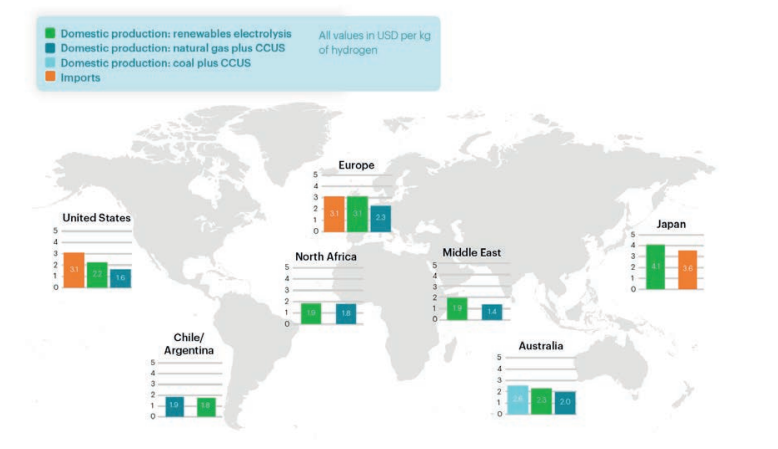
Using hydrogen for long duration energy storage is cheaper than alternative technologies. Hydrogen storage can also provide grid flexibility and store excess renewable generation for use during peak demand.
While batteries are great for short duration energy storage, hydrogen and its derivatives (like methane and ammonia) are better suited for long duration energy storage as shown in the graph below. Storing energy for weeks and even months elevates hydrogen’s critical role for energy security and reliability.
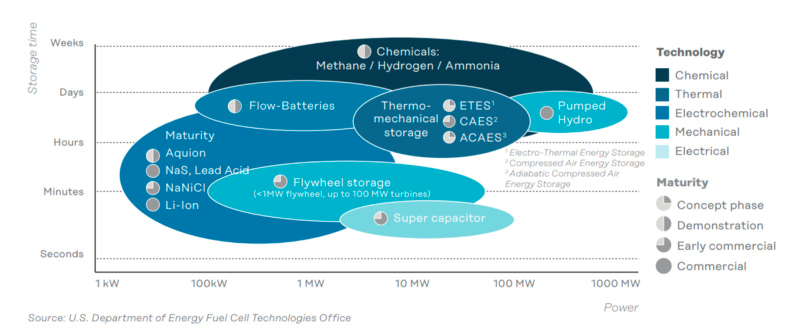
Companies like GKN Hydrogen and H2GO Power in Europe, and LAVO in Australia are utilizing XH technology to pioneer long-duration energy storage. In the US, FuelX, Green Fortress Engineering, and Harnyss are developing XH systems with versatile applications ranging from military to aviation.
While most VCs have traditionally stayed away because of the capital intensive nature of these businesses, the huge impact and in-built technical moat of these businesses can lead to a much higher exit than climate tech software companies. Another advantage of XH technologies over batteries is the type of metals used.
Lithium, the primary element in most batteries, has supply constraints, high water requirements, and is primarily processed in China which predominantly uses coal and other carbon-intensive sources of energy. On the other hand, most common elements, like magnesium, sodium, potassium, and silicon, used in XH technologies, are not as widely used in other energy transition technologies, and therefore have a lower chance of a shortage.
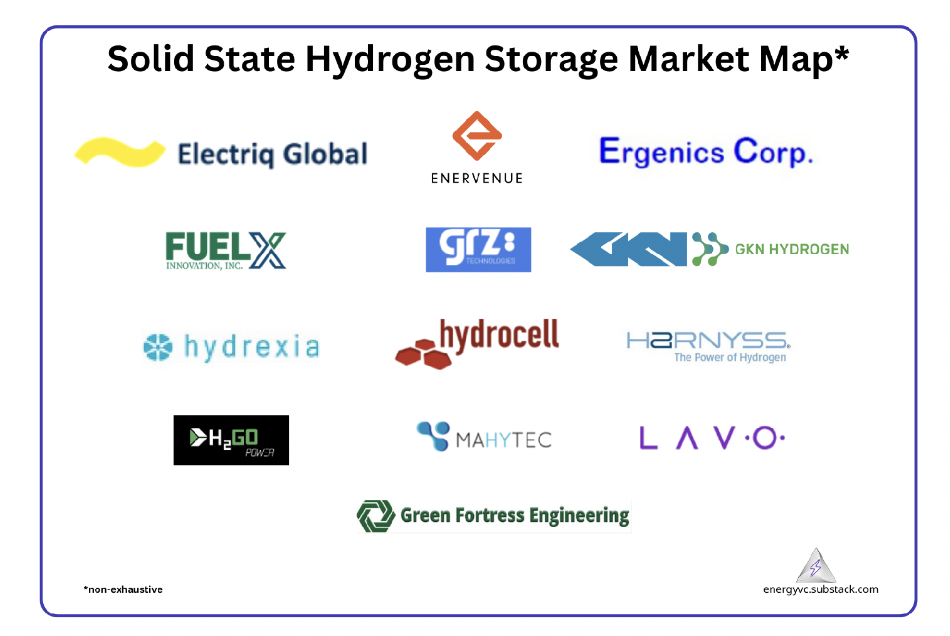
Hydrogen, with global regulatory tailwinds, is poised to play a key role as an energy carrier towards solving the energy trilemma. We will need to efficiently store and transport hydrogen to unlock its full economic potential as a commodity and decarbonize heavy industries in the process. Investing in innovative and sustainable energy technologies, like solid-state hydrogen storage, not only makes economic sense but is also a crucial step towards a more sustainable future.
About Ritabrata:
Ritabrata Santra is an Included VC fellow and the author of Trilemma Tech. His goal is to use his expertise and knowledge to create a more equitable and sustainable world, one that is not limited by outdated technology and lack of access to energy. Opinions expressed here are his own and do not represent any of his current, past, or future employers
READ the latest news shaping the hydrogen market at Hydrogen Central
The Case for Solid State Hydrogen Storage in Solving the Energy Trilemma, May 10, 2023

